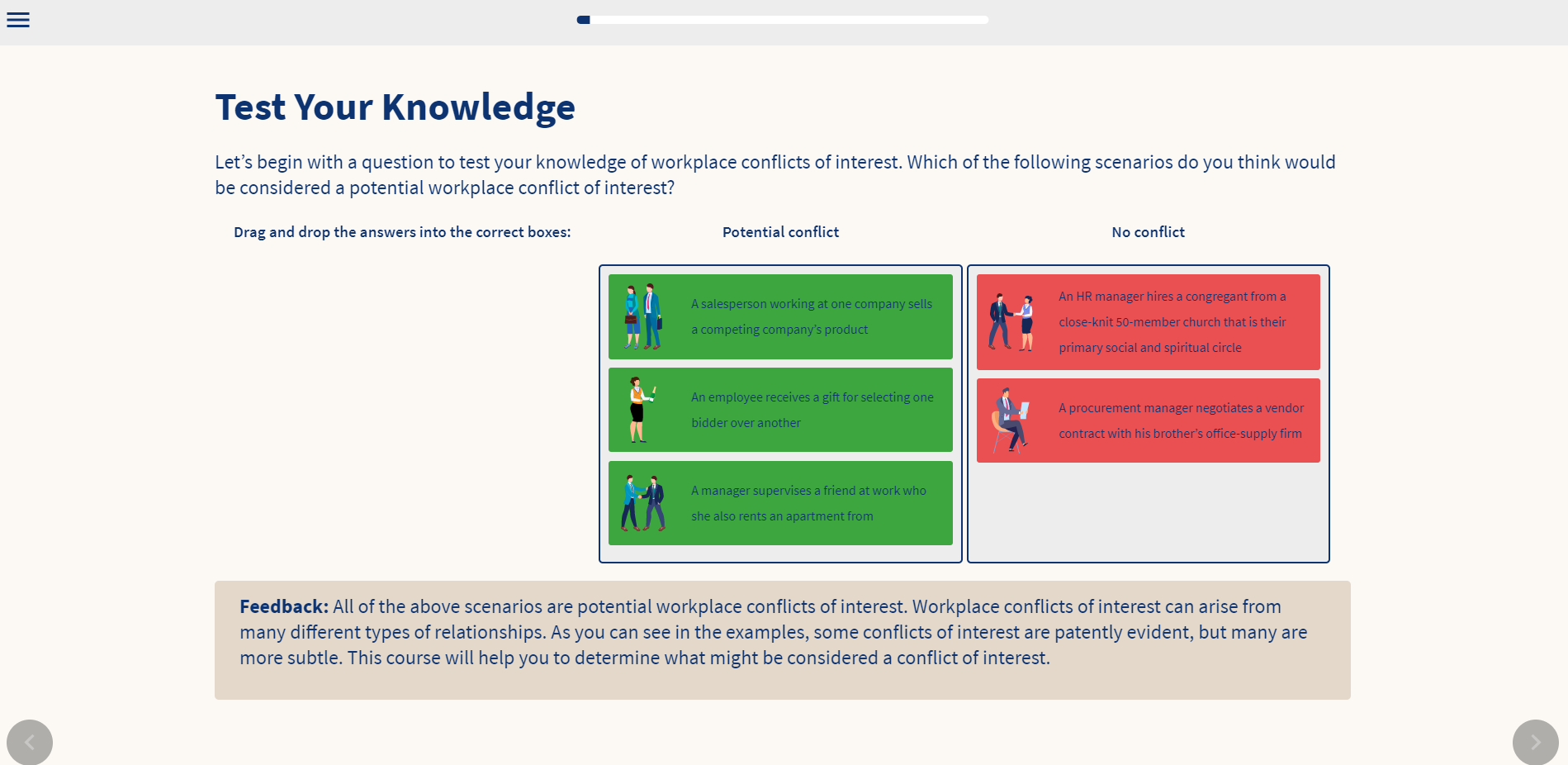What is a Conflict of Interest in the Workplace?
A conflict of interest in the workplace is a situation in which an employee becomes unreliable due to a clash between their personal or financial interests and their professional duties. A quick news search will reveal how prevalent and widespread such conflicts are, affecting every industry and not sparing any corner of the globe. Sometimes, conflicts may be minor and prove to be innocuous, but often, conflicts pose a serious threat that could seriously undermine an organisation’s reputation and future, and even have legal implications. Even the mere appearance of a conflict could have severely damaging consequences for organisations. Regular training and oversight to ensure staff are educated to spot and report conflicts are the keys for individual workers and organisations to maintain integrity, avoid conflicts of interest and their consequences, and remain compliant.
What are the various conflicts-related regulations around the world?
Conflicts of interest exist throughout the world and in every sector, including the commercial, government, legal and medical sectors. In the EU, some legislative initiatives that attempt to provide regulation surrounding conflicts of interest are the Market Abuse Regulation, Markets in Financial Instruments Directives I and II and the Transparency Directive. The Organisation for Economic Cooperation and Development (OECD), whose member countries number thirty, has developed guidelines for managing conflicts of interest in the public service. However, the effectiveness of these and other regulations has been questioned, as a rigid rules-based approach can lead to poorer, less relevant advice given and decisions made. Therefore, regular, relevant and customised training is necessary and is arguably the most effective way to provide the education individuals and organisations need to practice the moral and ethical thinking and judgement necessary to avoid conflicts of interest.
What are the consequences of conflicts?
Failing to disclose and being involved in conflicts of interest can have severe consequences for workers, including termination, in cases where a conflict is irreconcilable with a worker’s role in the organisation; restriction of access to certain information either on a temporary or permanent basis; removal of authority over certain issues; the involvement of authorities if unlawful acts have been carried out; divestments or liquidation of financial interests that are in conflict, as well as personal reputational damage. On the organisational level, consequences can include severe and possibly irreversible reputational damage, hefty fines, and legal action.
Tips for remaining compliant: Regular training and reporting

Staff training together with transparency are the best tools for effectively mitigating the risk of conflicts of interest in the workplace. An educated staff can be exceedingly helpful in the fight against corruption. Offering regular compliance and ethics training is key in order to ensure that workers are aware of their personal responsibilities as well as able to spot potential concerns.
A requirement for staff to formally document any actual, perceived, or potential conflict of interest that arises in their work along with effective oversight and tracking can help identify, immediately address, and mitigate the risk of issues that come up. There are lots of tips for workers to be aware of to help them and their organisations remain compliant. Many are universal, and some may vary depending on one’s particular role.
Our new, interactive, and fully customisable Conflicts of Interest course covers various different industries and exposes users to real-life scenarios and situations where they might encounter a conflict of interest, provides guidance and tips for employees in different roles on how to spot conflicts of interest in their day-to-day job, and gives advice for employees about when situations should be brought to the risk or compliance team in an organisation, thus making it a crucial addition to any company’s suite of compliance training.








